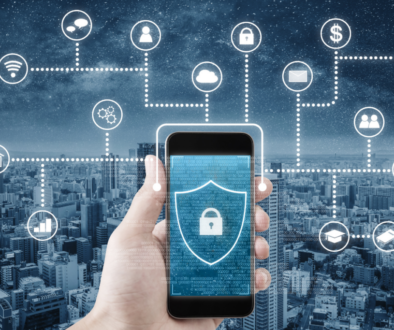Reasons of Cyber Crimes.
One of the worst acts a man can perform is committing a crime. Crimes represent violations of the moral laws and ethical norms and they can be explained by various sociological, environmental, psychological and political approaches. One of the first questions asked by law enforcement officials after a crime is committed is “What was the motive?” The advancement of technology has made man dependent on Internet for all his needs. Internet has given man easy access to everything from the comfort of our homes. Social networking, online shopping, gaming, online studying, online jobs, every possible thing can be done through the internet. With the development of the internet and its related benefits also developed the concept of Cyber-crimes. Cyber-crimes are committed in different forms. Initially there was lack of awareness about the Cyber-crimes that could be committed. In the matters of Cyber-crimes, India is also not far behind the other countries where the rate of incidence of Cyber-crimes is also increasing day by day. As people increasingly conduct business and live their lives online, more and more criminals are leveraging the internet to steal. So let’s look at some of the reasons why Cyber Crime is on Rise globally.
Ease of Committing Crime:
Today, fewer skills than ever are required to commit a Cyber-crime. Cyber criminals do not need to be a computer or programming expert to know how to hack. A variety of low-cost hackers’ tools are available online for Cyber criminals. There are hundreds of tutorials and digital manuals available on YouTube / Facebook and other social platforms that explain step by step how to use these hacking tools. The sad part is that movies and videos portray Cyber Criminals in glamorous ways. That affects the mindset of adolescent kids. They try to copy these behaviors of Cyber Criminals. Many of the videos, tutorials and websites linked to teen-oriented content on social media. One more lucrative aspect of Cyber-crime is that the Cyber-criminal can target the entire globe from the comfort of his home. As a result Cyber Crime has skyrocketed. Cyber Criminals can also target multiple locations simultaneously locally and globally.
Reward to Risk Ratio:
Cyber-crimes are not hazardous as other types of crimes are. Reward to risk ratio is very high in Cyber-crime cases. Forces acting against such crimes are still technologically lagging as compared to people implementing the crime; thus, the risk of criminals getting caught is lowered. Another temptation for criminals is the earnings to cost ratio, which is also soaring high. The technology and skills required for such acts can be easily availed and are cheap, but the profits of criminals are much higher than the cost. Just hacking into a single account can fetch Cyber-criminals a lot of money, resources, and information about the user, which can be used to extort compromised user. The risk of Cyber Criminal getting caught is very low, making cyber Crimes one of the most lucrative field for criminals.
Anonymity:
An increasing number of Cyber criminals are using the encrypted part of the internet that cannot be tracked — to shop for software that helps them remain anonymous while carrying out their crimes. The most significant feature of the Internet is that the identity of its users can be kept hidden and cannot be tracked, which is why Cyber Criminals are harder to tack. The traditional means of tracking using IP address can easily be avoided using VPN or Onion routing which is a technique for anonymous communication over a computer network. A Cyber Criminal can commit most heinous crime and stay undetected forever. MyDoom is the most devastating computer virus to date, which caused more than $38 billion in damage. Microsoft offered $2,50,000 reward for information leading to the arrest and conviction of the person responsible for releasing MyDoom worm. Till date no one has claimed that award. This shows that it’s almost impossible to catch a Cyber-criminal.
Espionage:
After land, sea, air and space, warfare has entered the fifth domain: Cyber-space. President Barack Obama has declared America’s digital infrastructure to be a “strategic national asset”. Cyber spying is the act of engaging in series of attacks that let an unauthorized user view classified / secret information / data. It’s an action by a nation-state to penetrate another nation’s computers or networks for the purposes of causing damage or disruption. The goal is typically to acquire intellectual property of an organization or government secrets. Attacks can be motivated by greed or profit, and can be used in conjunction with a military operation or as an act of terrorism. Cyber espionage attacks can result in damaged reputations and stolen data, including personal and private information. Cyber-attacks targeted at the government may cause military operations to fail, and can also result in lives lost due to leaked classified information.
In December of 2009, Google began to notice persistent Cyber-attacks aimed at acquiring information specific to Gmail accounts. The accounts were held by Chinese human rights activists, and Google wasn’t the only target. To the search engine giant’s credit, they quickly informed at least 20 other companies that they too were being targeted through a vulnerability in Microsoft Internet Explorer. Preventive measures were taken, and McAfee Labs identified the problem in early 2010 and code-named it ‘Aurora’. Similarly; A very sophisticated Cyber espionage virus targeting computers in the Middle East and discovered in 2012. A very large and complex virus that uses various methods to hide itself and spoof antivirus software, Flame was designed to grab local and network data, including Skype video sessions. Also called “Flamer” and “SkyWiper,” unlike Stuxnet, which was targeted at industrial controllers, Flame is a general-purpose virus for Windows PCs that can be remotely commanded to perform countless surveillance tasks.
Hacktivism:
As the name suggests a form of activism involving the hacking of computers and computer networks. This is done in order to protest against acts of injustice or tyranny. The term was coined in 1994 by a cult of “The Dead Cow” member known by his online handle Omega. The cult of the dead cow is a computer hacker and media organization that was founded in 1984 in Lubbock Texas. This was one of the earliest hacking organizations formed. Hacktivism has been brought into the spotlight in recent years with more hacktivists active online than ever before. Anonymous a loosely associated ever-changing group of hacktivists composed of people from all walks of life united by their love of computer systems and their love for fighting the system and passion for human rights. Anonymous can be thought of as the faceless do-gooders of the web. The anonymous movement grew from the online community 4-Chan. Anonymous is now a world renowned political movement. Anonymous has fought for a plethora of good causes. For example Operation Darkness was aimed at retaliating against under aged pornographic websites, targeting the digital properties of various hate groups, uncovering Chinese military cyber-attacks against the United States etc. Hacktivists do their online attacks not to make money but to make a political point they’re not interested in personal gain. They hack into places leak sensitive information or launch denial of service attacks to make a point to protest.



